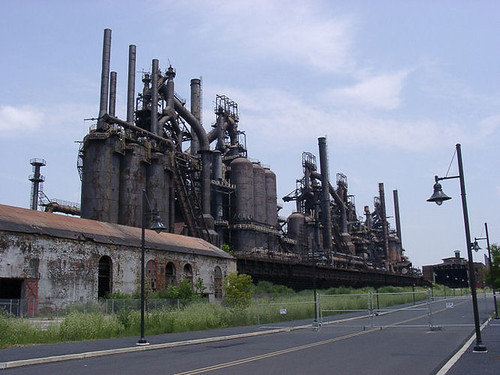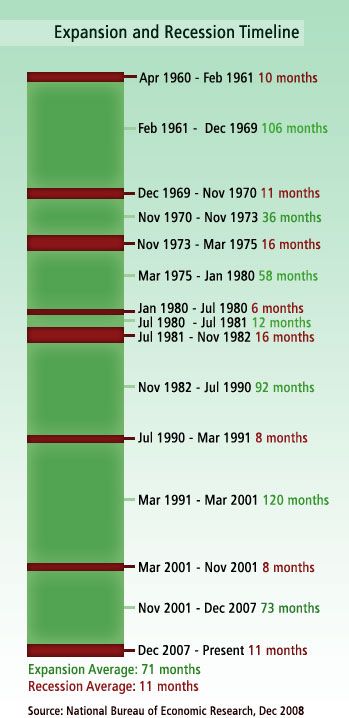A headline over last weekend...
BETHLEHEM, Pa. – Gamblers tried their luck Friday at Pennsylvania's newest casino, a $743 million slots parlor built on the site of a historic mill where tens of thousands of workers once made steel for warships and beams for countless skyscrapers and bridges.
As Paul Harvey used to say, there is a lot more to the story than just a new casino.
We're talking Bethlehem Steel (1857-2003). An icon. A treasured name in American industrial history:
Bethlehem Steel, based in Bethlehem, Pennsylvania, was once the second-largest steel producer in the United States, after Pittsburgh, Pennsylvania-based U.S. Steel. After a decline in the U.S. steel industry and management problems leading to the company's 2001 bankruptcy, the company was dissolved and the remaining assets sold to International Steel Group in 2003. In 2005, ISG merged with Mittal Steel, ending U.S. ownership of the assets of Bethlehem Steel.

pmPilgrim Photo, 7/2004
Bethlehem Steel was also one of the largest shipbuilding companies in the world and one of the most powerful symbols of American industrial manufacturing leadership. Bethlehem Steel's demise is often cited as one of the most prominent examples of the U.S. economy's shift away from industrial manufacturing and its inability to compete with cheap foreign labor.
--Wikipedia
We're talking Bethlehem Steel!
If you are not from the east coast or eastern Pennsylvania, let me put it this way- we're talking the same thing as General Motors and Chrysler.
(Lee Iacocca is from Allentown, PA, the other side of the Lehigh Valley, and went to school at Lehigh U. just up the hill from Bethlehem Steel.)We're talking the paradigm of American industrial strength. Sure US Steel was bigger, but Bethlehem was Bethlehem right there in the same Valley as Mack Truck, and well, you know, when something is built like a Mack Truck, it lasts.
(Mack Truck, another US icon has been a subsidiary of Renault since 1990 and of Volvo since 2001. Oh, and they are moving headquarters from Allentown, PA to North Carolina.)This wasn't originally meant to be a second part like the lost trains post on Sunday, but it is beginning to look like it, isn't it? Just the sight of the article on the casino opening in Bethlehem was enough to get me thinking, reminiscing, and well, getting sad.
We can probably discuss, argue, dissect and disagree for hours over the changes in American industrial and manufacturing from the long painful death of Bethlehem Steel to the current automotive industry reshuffle or even the banking crisis. Some of it is business models based on a world that no longer exists. Some of it is greed. (All executives wanting corner offices so you build a building with twice the number of corners. See
Good to Great by Jim Collins.) Some of it is grandiosity (What's good for GM is good for the country.)
The Pulitzer-Prize winning late editor of the Bethlehem Globe-Times, John Strohmeyer in his book
Crisis in Bethlehem (1984) gives a good deal of the history which is as relevant to today's situation as it was 25 years ago. Here's the end of the 1994 preface:
Late in January 1994, Bethlehem suffered the ultimate indignity. The steel company announced that despite union concessions it has been forced to close down the hot metal steelmaking operations in Bethlehem. Those roaring blast furnaces which gave Bethlehem Steel it's life and its name in 1904 will be silenced forever...The steelmaking skills passed down by generations of Bethlehem families will be useless.
The city reacted with shock. The stock market was delighted... The saga of Bethlehem becomes a case study of the tumultuous, often insensitive, profit-driven changes in this nation's once impregnable industries.
--Google book search
pmPilgrim Photo, 7/2004
And now it's a casino, among other things. As we watch GM and Chrysler struggle as the Pennsylvania and New York Central Railroads struggled may we not "mourn" so much as learn. May we see that much of what is happening is a problem with more than one villain, few, if any, heroes, and lots and lots of victims. It does not have to mean the end of American industry. Not if we are willing to make some hard choices. Not if all involved, including those looking for "golden parachutes" are willing to make sacrifices.
It is all very complex. But it is not unheard of nor unusual. Perhaps in the American mythology it is, but there have been a lot of industrial names we thought we would never lose. Let's do what we Americans can do so well- apply our ingenuity and stick-to-it-iveness and figure out where we need to go and not where we have been or wish we were.






